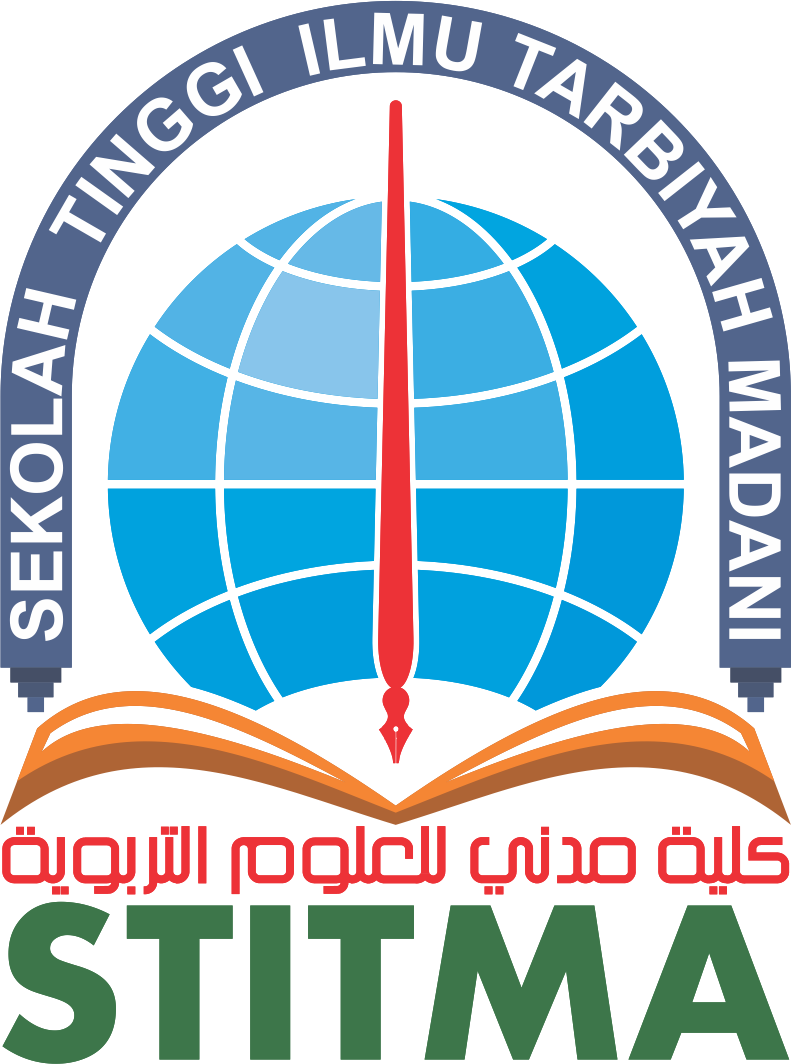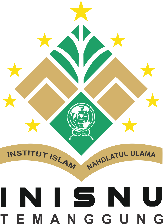Problematika Pembelajaran Mahasiswa Lulusan Sekolah Umum pada Program Studi Pendidikan Bahasa Arab di Sekolah Tinggi Ilmu Tarbiyah Madani Yogyakarta
DOI:
https://doi.org/10.59944/jipsi.v1i2.45Keywords:
Learning Problems, Student, Public School GraduateAbstract
This study aims to determine the problems of learning Arabic, especially for students of Arabic Language Education (PBA), from public schools who continue their education at the Tarbiyah Madani College of Yogyakarta. Learning Arabic has become one of the important subjects in education in Indonesia, from elementary to tertiary level. One of them is at the STIT Madani Yogyakarta college. Where students who continue their education at the lecture level can take the Arabic Language Education study program at STIT Madani Yogyakarta. Those with different backgrounds graduate from both ma'had-ma'had or Islamic boarding schools, Madrasah Aliyah and also other public schools such as SMA/SMK where they have big hopes and aspirations by continuing their education. The types of problems faced by students in the learning process in class include: 1) Vocabulary/mufroda problems, 2) Qowaid and i'rob problems, 3) Tarqib/word order, 4) Shame and lack of confidence. This type of research is a quantitative descriptive. Data collection techniques were carried out based on observation, interviews, experience, and the author's observations. The results of this study indicate that there are two factors, namely supporting factors and inhibiting factors, supporting factors are something that can facilitate and maximize the target of what has been determined, while inhibiting factors are everything that can complicate and support the failure of STIT Madani Yogyakarta students in the learning process
References
Asifuddin, Djanan, Ahmad. Metodelogi Pembelajaran Bahasa Arab. Yogyakarta: Pustaka Belajar, 2003.
Fachurrozi, Aziz dan Mahyuddin, Erta. “Teknik Pembelajaran Bahasa Arab.” Bandung: CV.Cendikia Utama, 2014.
Fuad Efendi Ahmad, “77 Pertanyaan seputar Bahasa Arab”. Misykat Indonesia, 2017 Hadits Riwayat Al-Bukhari nomor.39 dan Nasai' (VII/122)
Alfin Rizki Nugraha. Hasil wawancara mahasiswa STIT Madani Yogyakarta, 2022.
Hiebert, Elfrieda H. dan Kamil, Michael L. Teaching and learning Vocabulary: Bringing Research to Practice. London: Lawrence Elbaum Associates, 2005.
Hafidz, & Nashihin, H. (2021). IMPLEMENTASI TOTALQUALITYMANGEMENT (TQM) DI MADRASAH IBTIDAIYAH DARUL HUDA YOGYAKARTA. As-Sibyan, 3(2), 37–50. https://doi.org/10.52484/as_sibyan.v3i2.189
Husna Nashihin, Anisatul Baroroh, & Aslam Ali. (2020). IMPLIKASI HUKUM TEKNOLOGI INFORMASI DALAM PERKEMBANGAN TEKNOLOGI PENDIDIKAN ISLAM (Telaah atas Hukum Moore, Hukum Metcalfe, dan Hukum Coase). At Turots: Jurnal Pendidikan Islam, 2(2), 57–73. https://doi.org/10.51468/jpi.v2i2.39
Ilham Fatkhu Ramadhan, dkk. “Problematika Linguistik dan Non Linguistik Pembelajaran khitobah di jurusan sastra Arab Universitas Negeri Malang, dalam seminar nasional bahasa Arab Mahasiswa.” 2018.
Nashihin, H. (2019a). Konstruksi Budaya Sekolah Sebagai Wadah Internalisasi Nilai Karakter. At-Tajdid: Jurnal Ilmu Tarbiyah, 8(1), 131–149.
Nashihin, H. (2019b). Proceedings of 2nd International Conference on ASIC. https://doi.org/10.1109/icasic.1996.562734
Nashihin, H., Yahya, M. D., & Aziz, N. (2020). Morality and Expression of Religious Moderation in " Pecinan ”. Dalimunthe 2016, 24158–24168.
Nuur, Khaerunnisa. “Peningkatan penguasaan mufrodat mahasiswa melalui media berbasis Teks cerita”, dalam jurnal Diwan, 2017.
Malibary Akrom A. Pedoman Pengajaran Bahasa Arab Pada Perguruan Tinggi, Jakarta: DA Depag, 1996.
Mustofa, Syaiful. Sttategi Pembelajaran Bahasa arab inovativ. Malang: UIN Maliki press, 2011.
Syuhabuddin, op.cit. (Jurnal Ilmu-Ilmu keislaman Dan Kemasyarakatan: Napis Dj, Dosen STAIN Majene), 2007.
Tarigan, Henry Guntur. Bilingualisme – Studi dan Pengajaran. Jakarta: Proyek pengembangan Lembaga Pendidikan Tenaga Pendidikan, 2009.




























